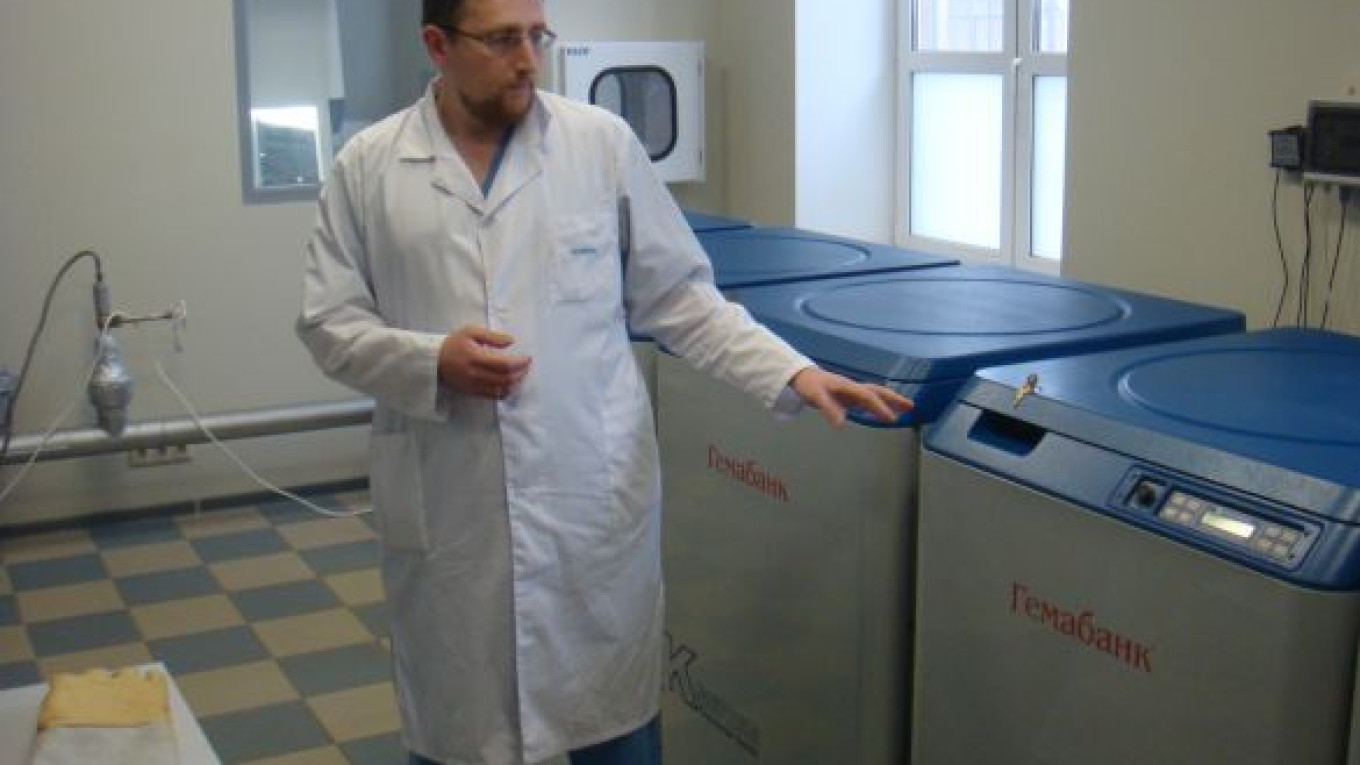The Moscow-based Human Stem Cell Institute has made a business of innovation, but it will be breaking ground in a new field when it lists a 20 percent stake on the MICEX next month.
The company’s initial public offering will be the first on the MICEX this year and Russia’s first ever in the biotech sector. With a high-end target of 165 million rubles ($5.75 million), the sale pales in comparison to the precrisis listings of industry and energy giants, but analysts said investor interest could nonetheless be solid.
HSCI, founded in 2003, estimates that it occupies 54 percent of the Russian biotechnology market. The company works with human stem cells, including personalized storage for medical use, and develops pharmaceuticals using related technology.
“We’ll have our IPO by Dec. 10 and list 15 million ordinary shares at 9 rubles to 11 rubles each on the MICEX,” chief executive Artur Isayev said Monday. “We hope to attract 135 million to 165 million rubles in cash.”
Isayev owns 51 percent of the firm, and he said he would retain the majority stake after the offering. He didn’t specify whose shares would be sold.
HSCI reported 96.5 million rubles in 2008 revenue, a figure Isayev said would grow this year, despite the economic downturn.
“We expect to report 150 million to 160 million rubles in revenue, up 64 percent year on year, and 22 million rubles in net profit, according to Russian accounting standards,” he said. “We think the IPO will be a success because we have no competitors in this sector going public so far, and no other company is conducting an IPO in 2009 either.
The company decided to list because it needed more capital and interest rates remain high. The Central Bank reported Oct. 22 that rates for corporate loans averaged 14.5 percent in September.
Alor Invest, which is leading the IPO, was bullish on HSCI’s chances to boost its capitalization.
“According to our pessimistic scenario, we expect 40 percent annual growth in capitalization and revenues,” Maxim Dremin, head of Alor Invest’s corporate finance department, said in the IPO prospectus. “But the main growth in capitalization will be driven by the launch of three innovative medications, the licenses for which may be worth hundreds of millions of dollars.”
HSCI expects to release two medications next year to cure numbness in the lower extremities and heart anemia, and it will also introduce a technology to cure skin defects, Isayev said.
Vladimir Savov, head of research at Otkritie, which is not involved in the listing, said the IPO could be successful because it was a low-cap offering in a “novel sector” and the company had the courage to list as the economy is just starting to recover.
“Suppose they sell the shares at 10 rubles, they’ll attract 150 million rubles in cash, which equals their annual revenue and is seven times net profit, which is rather reasonable,” he said. “I think major domestic and international investment funds, which prefer large-scale investments, are unlikely to buy these shares, but some specialized funds considering venture and high-tech projects might be interested.”
A Message from The Moscow Times:
Dear readers,
We are facing unprecedented challenges. Russia's Prosecutor General's Office has designated The Moscow Times as an "undesirable" organization, criminalizing our work and putting our staff at risk of prosecution. This follows our earlier unjust labeling as a "foreign agent."
These actions are direct attempts to silence independent journalism in Russia. The authorities claim our work "discredits the decisions of the Russian leadership." We see things differently: we strive to provide accurate, unbiased reporting on Russia.
We, the journalists of The Moscow Times, refuse to be silenced. But to continue our work, we need your help.
Your support, no matter how small, makes a world of difference. If you can, please support us monthly starting from just $2. It's quick to set up, and every contribution makes a significant impact.
By supporting The Moscow Times, you're defending open, independent journalism in the face of repression. Thank you for standing with us.
Remind me later.


